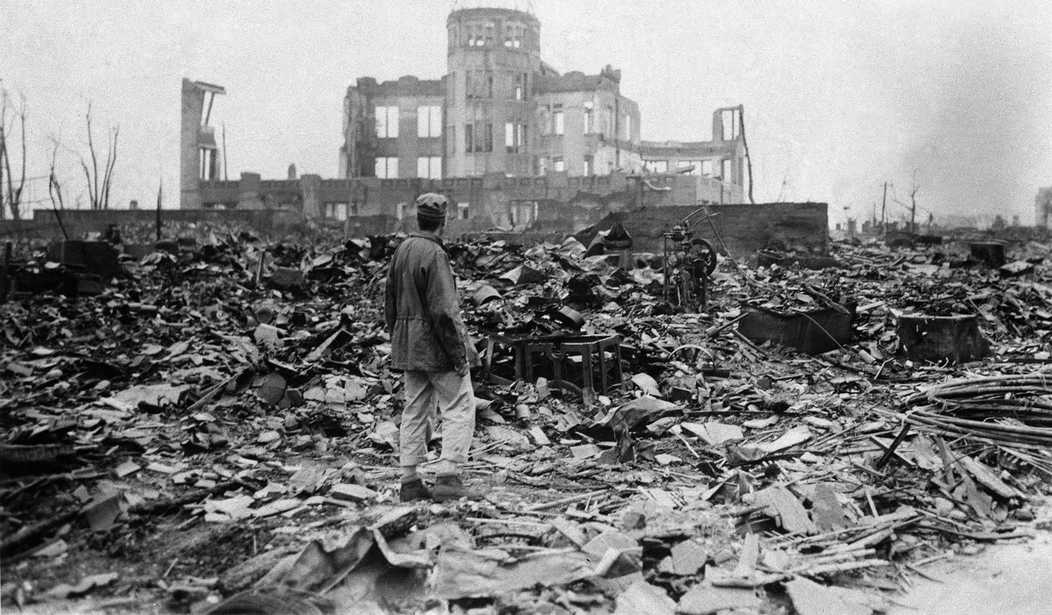Seventy Five years ago this week the strangest battle of World War II was fought in the Austrian Alps. The engagement, the Battle for Castle Itter, was so unbelievable that it could easily be a film. However, the Battle for Castle Itter also serves as an important checkpoint in history, particularly in regards to the Myth of the Clean Wehrmacht as it pertains to the Holocaust.
The origins of the Battle of Itter Castle came when Germany annexed Austria in 1938. Thereafter, the Castle was taken by the German S.S. and used as a prison during World War II. The diversity of prisoners alone would be enough for cinema. Two former Prime Ministers of France, including co-architect of Appeasement Edouard Daladier, other politicians, military officers, a tennis star, and even Charles de Gaulle’s sister were prisoners at Itter Castle. However, the most interesting part of the Castle’s history was yet to come.
In May 1945, World War II was ending and the commander of the prison and his S.S. Guards left. The prisoners armed themselves and one of them contacted a local German Wehrmacht Major named Josef Gangl, asking for his help in defending the Castle against the Waffen S.S. who were expected to try and take the Castle back. Gangl agreed and eventually brought over 10 soldiers to help and on the way, met up with U.S. Army Captain John C. Lee who agreed to provide troops to help defend the castle and its prisoners against the S.S.
The expected battle ensued which saw French prisoners as well as U.S. Army and Wehrmacht soldiers, outnumbered by almost six to one, fighting together against the Waffen S.S. The unlikely alliance held off the S.S. until further American forces arrived (which included at least two Polish soldiers) and the Nazis were routed.
Recommended
All prisoners were freed. Major Josef Gangl heroically died defending the prisoners against the S.S. He was the only soldier on the Allied side killed in the battle. Captain Lee received the Distinguished Service Cross, the U.S. military’s second highest award for valor, for his role in the mission.
The story of the Germans switching sides and fighting with the Americans against the S.S. is an important one, almost heartwarming to some. It is a reminder that not every enemy soldier was bad, but that fact should be taken with great caution.
While not every soldier in the Wehrmacht was complicit in the Holocaust, anti-Semitic, or a member of the Nazi party, the leadership of the Wehrmacht was most certainly complicit in the Holocaust of the 1940’s. The officers of the Wehrmacht plotted aggressive war in particular in Eastern Europe against Poland, the Soviet Union and other Balkan and Slavic nations. Operation Barbarossa, the invasion of the Soviet Union that began on June 22, 1941, was far worse than even aggressive warfare. Barbarossa was a race war designed to exterminate Jews, Communists, Gypsies, and thereafter Slavs who were not in any of the three aforementioned categories. The apparatus that became the Holocaust was launched almost concurrently with June 1941 with Hitler ordering the Final Solution to Himmler as well as Hitler and Goering ordering Heydrich to create the framework for it to happen.
The Wehrmacht was highly complicit with the S.S. in the rounding up and killing of the Jews in the Soviet Union, in particular with the Einsantzgruppen which operated either with or directly behind the German Army. A good deal of the supporting proof of the Holocaust comes from letters that soldiers of the German Army sent back home detailing what was happening in the East.
The Wehrmacht had very good soldiers in terms of their fighting ability but it does not excuse them from the complicity of its officers and enlisted members in war crimes. There were many members in it who simply fought for Germany, or against communism, and nothing else but there were many others who fought for their Fuhrer and Lebensraum. Despite the sheer amount of logistical resources required to complete the Holocaust, the Wehrmacht never put up a visible fight saying that such resources could be used instead for the shooting war. This was not done as the extermination of European Jewry was just as much an objective of Nazi Germany as was living space.
Part of the Myth of the Clean Wehrmacht comes from that, even before World War II ended, the Soviet Union showed it could not be a trusted ally and American focus shifted to the Cold War. The myth continued through the years through film and the tension of the argument is even seen in video games such as Call of Duty: World War II where American troops are debating the decency of the German soldier.
World War II’s strangest battle is a story that deserves to be told as it does show that not all Germans were bad. However, the Battle of Castle Itter was the only one of its kind during the war. The German people for the most part loved Adolf Hitler and while perhaps not eager for war, they accepted him as Fuhrer and trusted him until the end. Understanding the latter point does not take away from the courage of Major Gangl and his troops. The Free World is big enough to know both Nazi Germany and the Soviet Union were evil.
























Join the conversation as a VIP Member